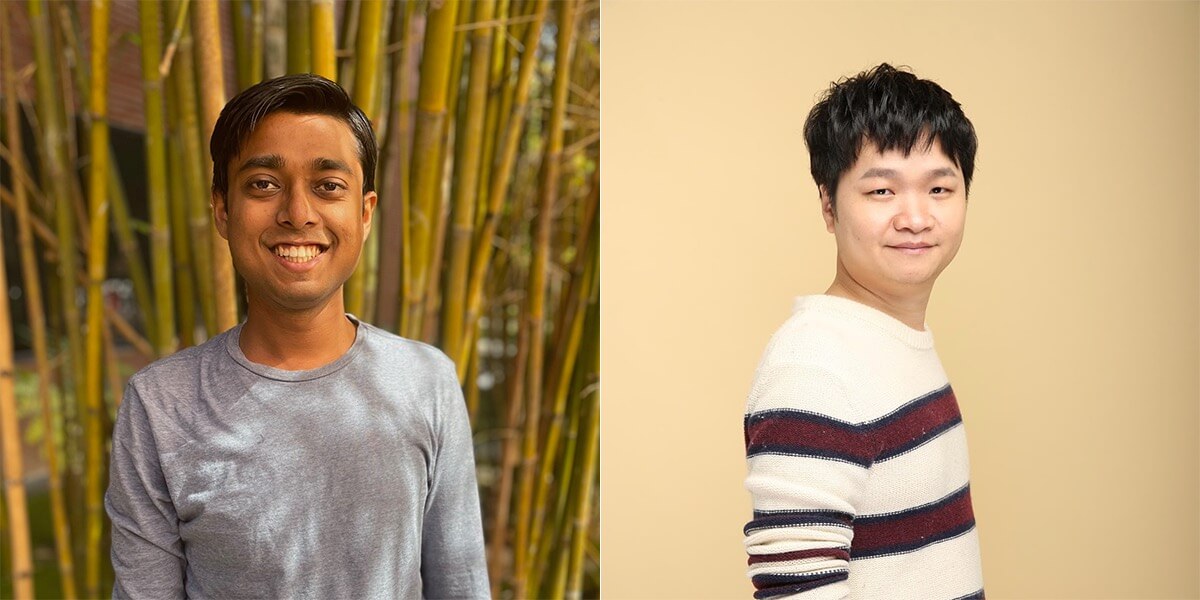
Saurav Prakash (left) and Chaoyang He are both students of Professor Salman Avestimehr (PHOTO CREDIT: USC Viterbi).
Two PhD students from the Ming Hsieh Department of Electrical and Computer Engineering and the Department of Computer Science, Chaoyang He and Saurav Prakash, advised by Prof. Salman Avestimehr, recently won prestigious Qualcomm Innovation Fellowships. The students’ proposal, titled “Federated Deep Learning: On-device Learning of CV and NLP with Transformers and CNNs” was one of only 16 proposals accepted. Of those accepted proposals, Prakash and He were one of only two teams to submit work in the new field of federated learning. This area of research is vital to establishing more trust and security in the AI and machine learning systems that play an increasingly important role in society.
“Machine learning requires large datasets to produce an effective model, said Prakash. “In the past, when accessing such large amounts of data, personal privacy has unintentionally been compromised, and this has led to a deep distrust of AI and machine learning in society.”
Imagine a federation of hospitals working together to understand a new disease. Each individual hospital has detailed information on many patients. If they could combine their data together, they could train a machine learning system to help better understand the disease. Unfortunately, doing so would be a serious breach of patient privacy and a security risk as well.
“Federated learning can allow these hospitals to safely and securely build a data set with their combined information without actually sharing the information with each other,” said He. In a world where more effective and better trusted AI systems are becoming increasingly vital to society, this advance cannot be understated.
Prakash and He, who are both members of professor Salman Avestimehr’s research group, have been working on this challenge for some time along with their advisor and fellow students. In fact, the team has established an open-source platform, fedml.ai, to facilitate federated learning research and development in diverse application domains. The FedML ecosystem, which has already attracted more than 600 active users worldwide and is ranked in the top 3 GitHub repositories for federated learning, provides a one-stop scientific platform to help researchers around the globe establish truly secure and trustworthy AI and machine learning.
With this fellowship, the duo plans to improve the efficiency of federated learning programs as a whole so the technology can be more widely implemented. “This fellowship creates an excellent opportunity for us to build stronger long-term collaborations with Qualcomm in the area of federated learning,” said Avestimehr.
Published on October 15th, 2021
Last updated on May 16th, 2024













